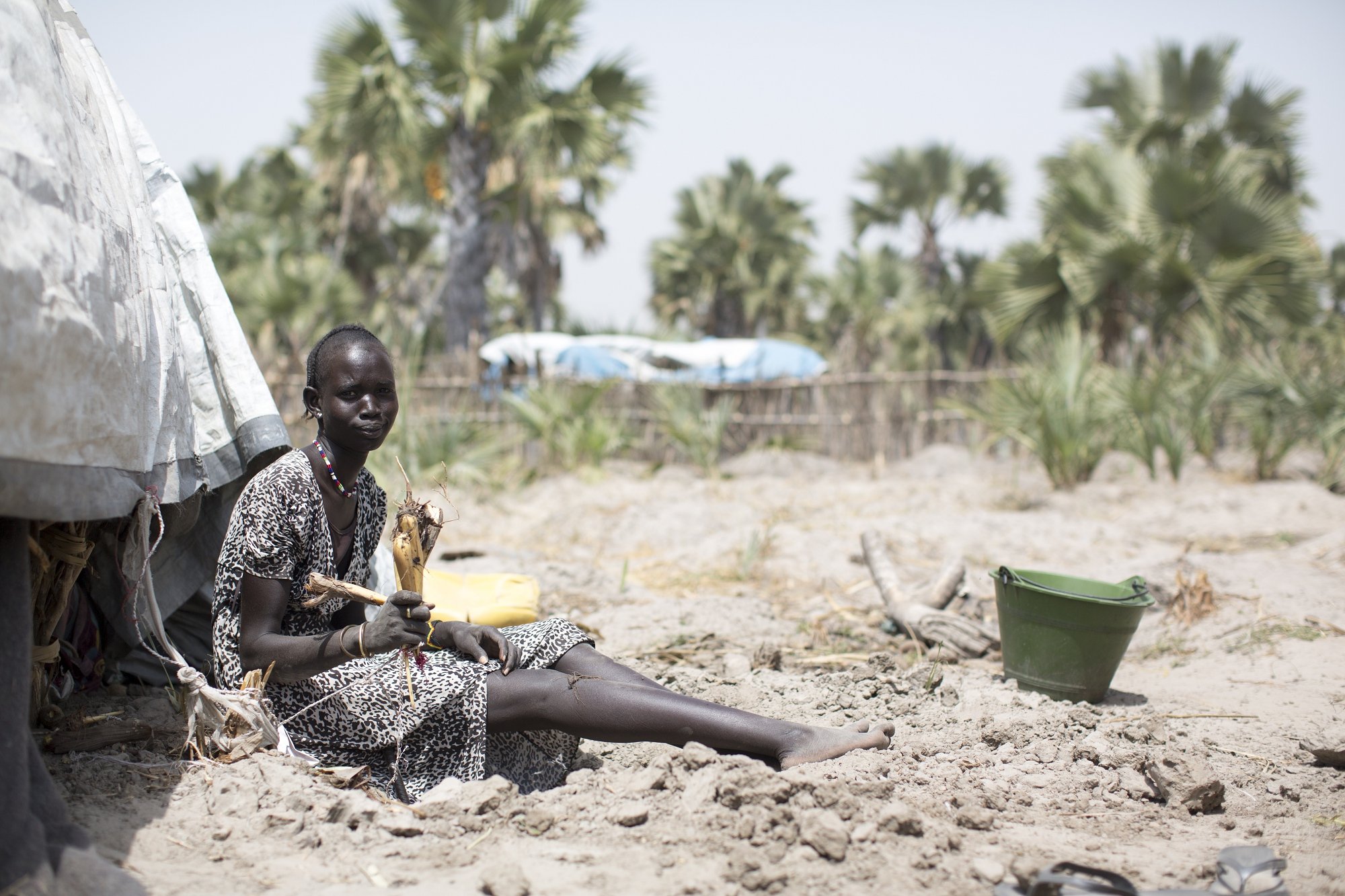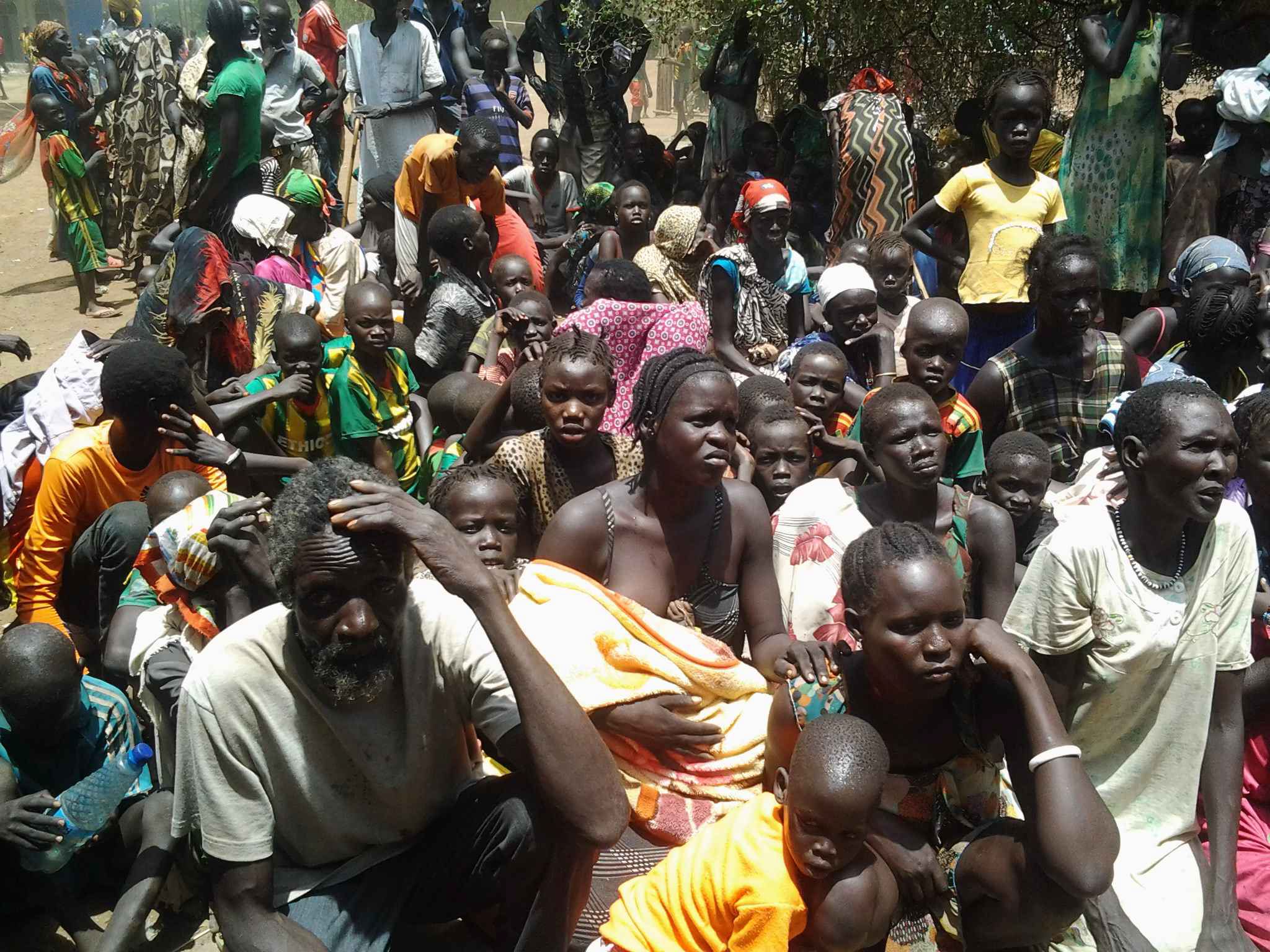Reaching out bring results for UNHCR in Malawi refugee camp
Reaching out bring results for UNHCR in Malawi refugee camp

DZALEKA REFUGEE CAMP, Malawi, November 8 (UNHCR) - Askal Tilahun says there's nothing like direct and regular personal contact to help her find out what's going on in Dzaleka Refugee Camp and who needs help.
The UNHCR community services officer is a member of a multifunctional team that visits a different zone of the camp each week, chatting to the refugees, getting to know their concerns and challenges, catching up on the gossip and keeping an eye out for problems that need to be addressed quickly. The camp is divided into nine zones, each gathering a mix of nationalities and named after different parts of Malawi.
It's a simple approach that has had a quick and important impact since being launched in February, helping UNHCR to build greater trust, reach out further, identify people with special needs and act on this knowledge.
Before, the refugee agency would only meet people at the UNHCR office to discuss concerns. Every day there would be a few dozen people at these sessions, but many of those most in need of help never showed up. UNHCR also held meetings twice a year with refugee leaders on age, gender and diversity issues as well as focus group discussions on protection concerns.
"After we started these zone visits, we could understand more about what the key issues were, and their impact on the lives of individuals," said Gavin Lim, a UNHCR field officer. "For example, the zone visits have really highlighted the fuel and energy problems camp residents face, and while we have not resolved the problems, we were able to bring on board a consultant who will advise the office on what we can do differently in 2013."
The visits have also directly helped many individuals, such as 63-year-old Elizabeth Djuma, whose cases might have fallen through the cracks but for UNHCR staff hearing about their problems or seeing for themselves during their weekly camp walkabouts.
Djuma, a refugee from South Kivu province in Democratic Republic of the Congo, struggled to look after herself and the grandchildren in her care after badly injuring her leg while trying to fix the roof of her shelter. One of the multifunctional teams found out about her situation during a zone visit and arranged for her roof to be mended and for counselling for trauma.
The outreach programme also helped the Mbayas, another family from eastern Congo. The family patriarch, Boniface, was kidnapped during an attack on their village last year, which left his parents and a daughter dead. His pregnant wife Jeanine, thinking Boniface was dead, fled with her three surviving children, including a six-year-old boy living with disability. But the husband had survived his ordeal and eventually fled to Malawi, where he was reunited by chance in a transit centre with his overjoyed wife and children.
The family were brought to Dzaleka and assisted by UNHCR and its partners with shelter materials and other basic necessities. Their oldest boy went to school, but they hid the brain-damaged Bonfice in their home. They feared the community would consider them cursed if they saw the boy and the family would be stigmatized and discriminated against.
Their secret was only discovered when another UNHCR field officer, Kelvin Sentala, heard a child crying during one of the first zone visits. When UNHCR staff learned of the child and his disability, they were able to assist the family by providing a special chair and enrolling him in a daytime care programme offered by UNHCR's partner, the Jesuit Refugee Service. They were given extra soap and kerosene. Bonfice and his family are now doing much better.
An additional benefit of these zone visits is that they have helped reduce the number of people turning up to meet UNHCR staff at the office. "It seems like there is now a sense from the refugees that UNHCR is more present in the camp, even though we were there before," noted Lim. "People know we are available to them and that coming to the office is not the only way they can speak to UNHCR staff."
The field officer said the refugees also had a better understanding of how UNHCR can support them. "We are now trying to incorporate what we have learned from the zone visits into projects that can help better address the gaps, such as developing a new community centre to address the lack of youth activities and get young people more involved," explained Lim.
Malawi hosts more than 15,000 refugees and asylum-seekers, mostly from Burundi, Democratic Republic of the Congo and Burundi. Nearly all reside in Dzaleka, located about 50 kilometres from the Malawi capital, Lilongwe.
By Tina Ghelli in Dzaleka Refugee Camp, Malawi








